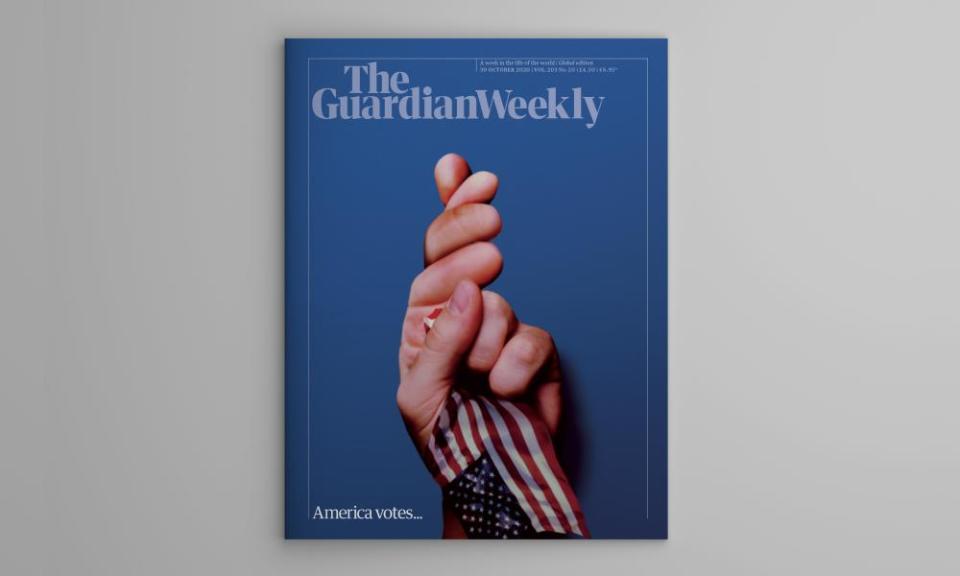America votes: Inside the 30 October edition of Guardian Weekly

Four years ago, Donald Trump turned the world upside down with a stunning US election win that marked a sea change for global populism and the politics of the right. Trump was the Washington outsider who promised to drain the swamp, build the wall and break with establishment politics. Four years on, many now hope the president’s abrasive manner, disregard for facts and bizarre handling of America’s coronavirus crisis have finally caught up with him.
Polls give the challenger Joe Biden a big lead ahead of the 3 November vote. But to win the White House, the Democrat must prevail where it matters, in America’s critical swing states and cities. Chris McGreal visits one such city – Cleveland, Ohio, where many Democratic voters stayed away in 2016, to see if they plan to come out in support of Biden this year.
Columnist Jonathan Freedland sets the tone for what is perhaps the most important election for decades by explaining why he cannot dare to dream of a Biden victory despite the favourable headwinds. And, on our Opinion pages, Andy Beckett looks at what the outcome might mean for transatlantic populism more generally.
Next week’s 6 November edition of Guardian Weekly will capture what’s certain to be a night of drama in Washington – which is likely to affect normal delivery times for the magazine. We hope you agree it will be worth the wait! And to keep right up to speed as the campaign draws to a close, don’t forget to sign up to the Guardian’s First Thing email newsletter, bringing the latest US news to your inbox each morning.
Anger boiled over on the streets of Nigeria last week after soldiers fired live ammunition at a peaceful protest, killing 12 people. The incident came amid widespread demonstrations against Nigeria’s notorious Special Anti-Robbery Squad (Sars) police unit, which have resulted in the deaths of nearly 70 people. On the eastern side of Africa in Kenya, similar stories of police brutality have emerged during the country’s coronavirus curfew period. We report from both countries where civil groups led predominantly by young people have risked their lives to stand up against security forces.
As the UK grapples with complicated new coronavirus restrictions, an unlikely row arose from a movement against child hunger by the footballer Marcus Rashford, who wants England’s poorest kids to receive free meals during school holidays. Rashford’s campaign has led to a meltdown in the Conservative party, with dozens of MPs and councils rebelling against the government’s somewhat baffling reluctance to act. We look at how the 22-year-old Manchester United and England striker – once a recipient of free school meals himself – has captured the hearts of a nation’s schoolkids.
Our longer-read features include a look at the complex legacy of the international brigades who fought in Spain’s civil war of the 1930s, while food writer Grace Dent opens up about her relationship with her father and his dementia.
Thank you for reading the Guardian Weekly.

 Yahoo Finance
Yahoo Finance 